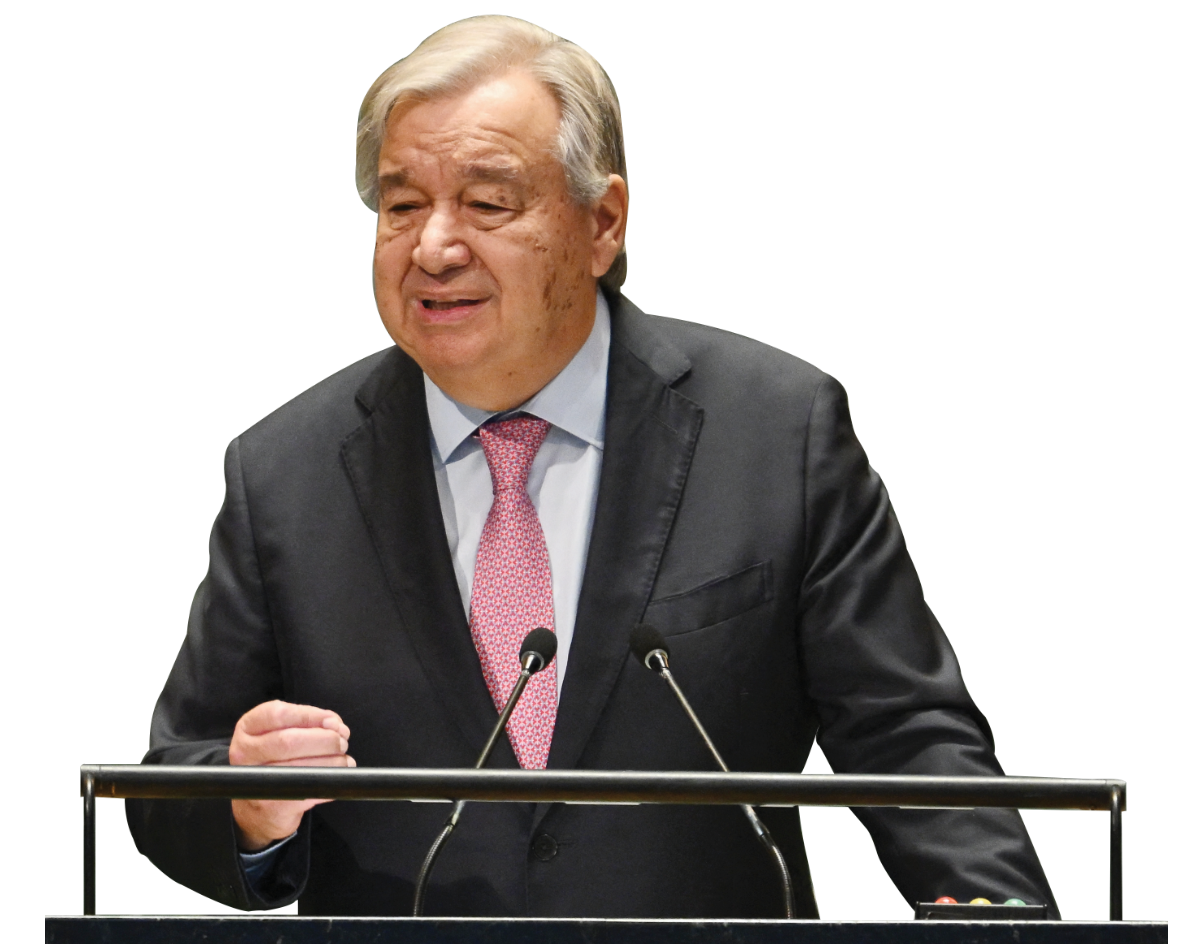NEW YORK: As the war in Gaza continues unchecked, many across the Middle East and the world believe the UN has failed the Gaza test.
They feel that fear of confronting the US and Israel has led the organization to retreat from the very international laws it was created to uphold, undermining its own credibility.
However, UN Secretary-General Antonio Guterres insists that “there is no fear in the UN Secretariat building to confront anybody.”
In an interview with Arab News on the sidelines of the 79th session of the UN General Assembly in New York, Guterres stated: “If I can be proud of anything, it is that my voice has been loud and clear in defense of the UN Charter, in defense of international law, in defense of international humanitarian law, and in defense of the right to self-determination of peoples, particularly the Palestinian people.
We have no real power, let’s be honest. The body of the UN that holds some power is the Security Council, and that body is paralyzed.
Antonio Guterres, UN Secretary-General
“I don’t think the UN can be accused of not being very clear in all these aspects, just as we have been clear in Ukraine and many other situations around the world.”
Guterres argues that blaming the UN for the failure to end the war in Gaza distracts from the real culprits: “Let’s be clear. The responsibility for the war lies with those who wage it.
“Could the UN have done more? I genuinely never felt we had the opportunity to do more than what we have done from the very beginning.
“We have called for a ceasefire, the release of hostages, and effective humanitarian aid since the start. Our voice has been loud and clear.

Antonio Guterres, UN Secretary-General
“We have pressured all parties, especially those with direct influence over Israel. But let’s be honest: It’s impossible to convince those who do not want to be convinced.”
Guterres further emphasized: “We have no real power, let’s be honest. The body of the UN that holds some power is the Security Council, and that body is paralyzed.”
The primary responsibility for maintaining international peace and security lies with the Security Council.
However, the dynamics and composition of this 15-member body reflect the historical context in which the UN was established in 1945, following the Second World War.
The veto power was granted to the victorious nations, which now include China, the UK, Russia, France, and the UK.
Tarek Al-Banai, Kuwait’s permanent representative to the UN, who has led negotiations for Security Council reforms alongside his Austrian counterpart for the past two years, highlighted the troubling reality that a single veto-wielding permanent member can obstruct action, even when a majority supports a motion.
He told Arab News: “The use or misuse of the veto has been a central focus for member states.
“Unfortunately, one member or a combination of members with that ability can halt the international community’s movement toward addressing critical issues, such as the genocide currently happening in Gaza.”
This unconditional US military and diplomatic support for Israel has been especially evident during the current war in Gaza, exacerbating internal divisions within the Security Council and severely impacting its ability to act. Since Oct. 7 of last year, the US has exercised its veto power four times against resolutions calling for ceasefires or humanitarian pauses in Gaza.
Despite this, the Security Council did manage to pass three resolutions — two concerning the entry of aid and one calling for a ceasefire during Ramadan.
However, even when the US abstained on Resolution 2728, allowing it to pass, Ambassador Linda Thomas-Greenfield undermined it by claiming it was non-binding, further weakening the Security Council and deepening divisions, reinforcing what many have described as US and Western “double standards.”
Nonetheless, the Security Council is just one institution among many within the UN system.
While these entities are interconnected, their responsibilities and approaches to conflict vary significantly.
These include the secretary-general, the General Assembly, the UN Relief and Works Agency for Palestine Refugees, the World Health Organization, the Office for the Coordination of Humanitarian Affairs, the Human Rights Council, the International Court of Justice, and UNICEF.
Guterres, who identifies as a humanitarian, expressed to Arab News that he has been “deeply saddened” by his inability to do more for Gaza, where the humanitarian crisis has reached catastrophic levels and the specter of famine looms over the embattled enclave.
“There have consistently been a series of obstacles — many caused directly by the Israeli authorities, as well as by insecurity in the area, where law and order have completely broken down,” he said.
“The proof that we are not doing more due to these obstacles is evident in the vaccination efforts for polio. When these obstacles are removed, humanitarian action becomes possible.
“It’s not that the UN isn’t capable of doing more; it’s that we have not been allowed to. When we are permitted to act, we do and we deliver, as evidenced by our past actions.
“However, I always say there is no humanitarian solution to humanitarian problems; the solution is always political.
“That is why we need to stop the war. We must create a clear roadmap for a two-state solution, one that aligns with the international community’s previous deliberations and allows Israelis and Palestinians to live together in peace and security.”





























